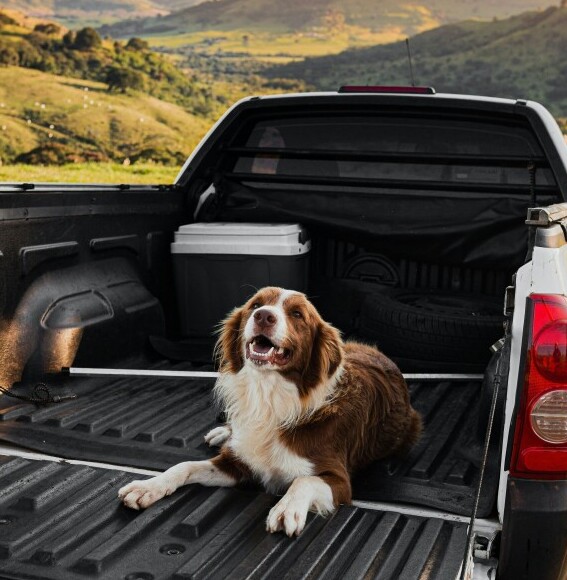- By : Debi
- Category : Dream Pet Business

Cashing in on the pet industry can be a lucrative adventure, but knowing which path to take is key. Not all pet businesses are created equal when it comes to profitability.
Besides travel businesses with pets there are other pet businesses. Pet grooming stands out as a top earner. Pet parents are spending big bucks on keeping their furry friends looking fresh.
 Offering a mix of grooming services and retail products could boost earnings.
Offering a mix of grooming services and retail products could boost earnings.
Boarding or pet daycare is another booming area. As pet ownership rises, so does the need for reliable care facilities. It requires an initial investment but promises substantial returns.
Selling pet supplies online or in a store can also be a great option. From toys to food, pets need a lot of stuff. Hosting events or workshops at your physical store can attract more customers.
Before diving in, assess the market demand in your area. Understanding what local pet owners are looking for can give you an edge. Go for a niche market, like catering exclusively to small dogs or exotic pets, to stand out.
Lastly, consider the start-up costs versus potential revenue. Calculate your overhead, including rent, supplies, and marketing, against your expected income to ensure it’s a sound investment.
Launching Your Pet Business from Home

Starting a pet business from home can be a sweet gig. It’s perfect for those who want flexibility and low overhead costs. But jumping in requires some planning and know-how.
First up, work out what type of pet service or product you want to offer. Whether it’s a dog sitting service, homemade pet treats, or online pet consulting, pick something you’re passionate about.
Check out the legal requirements in your area. Many local governments have specific licenses and zoning laws for home businesses. You’ll need the right paperwork to get started on the right foot.
Marketing is your best friend here. Utilize social media and local community groups to spread the word. Networking with local pet-related businesses can also help you gain a foothold in the community.
Consider the initial set-up of your home workspace. You’ll need to design a safe and efficient area for business operations. This could be a designated room for meetings or a kitchen for baking those delish dog treats.
To get some inspiration and practical insights, look into success stories of other home-based pet biz owners. They often share tips and tricks that could spark ideas and offer guidance.
Remember, starting small allows you flexibility. As demand grows, you can expand your services or product offerings. Keeping your passion at the heart of your business will help it thrive.
Choosing the Right Animal Business for You
Choosing the right animal business can feel like picking the right pup from a litter—not always easy but super important. Each business type brings its own set of opportunities and challenges.
If you’re a dog lover with a knack for training, consider a pet training business. There’s always demand for trainers who can work magic with canine behavior. Helping dogs and their owners live harmoniously can be incredibly rewarding.
For those who enjoy a more hands-off role, pet sitting or dog walking might be the ticket. It’s great if you love being around animals without needing a dedicated workspace.
Animal-assisted therapy offers a unique niche, merging pet love with supporting people in need. Though it requires specific training and certifications, the impact can be deeply fulfilling.
Transporting pets is another avenue, especially for those with a knack for logistics and travel. While we’ll touch more on this later, it’s worth considering if you enjoy being on the move.
Before settling on a path, reflect on your skills and interests. What part of working with animals brings you joy? What’s your comfort level with business logistics and customer interaction?

This self-assessment can guide your decision.
Remember, the right choice marries personal passion with market demand. Stick with what you’re excited about, and your business is more likely to succeed.
The Profitability of Pet Transport Business
The pet transport business is an intriguing option for animal lovers who enjoy travel. It’s a growing field, thanks to the increasing need for pet relocations.
Profitability here depends largely on your ability to establish reliable logistical processes and build a network of contacts in the industry. Consider starting by partnering with pet travel agencies or local animal shelters.
Becoming a certified pet transporter involves understanding regulations and safety protocols. In the USA, organizations like the USDA and IPATA offer resources and certifications to ensure safe and humane animal transport.
Profit can be driven by offering specialized services, such as international pet relocation or transport for special needs animals. These niches often have higher price points, adding to profit margins.
Start by investing in a reliable vehicle vetted for animal transport. Outfitting it with safety crates, climate control, and comfortable seating can boost your service’s appeal.
A good reputation is crucial in this line of work—build trust by ensuring that every journey is smooth, safe, and cost-effective. Word of mouth can be your best marketing ally, so prioritize exceptional customer experiences.
Happy Trails.

No Comments